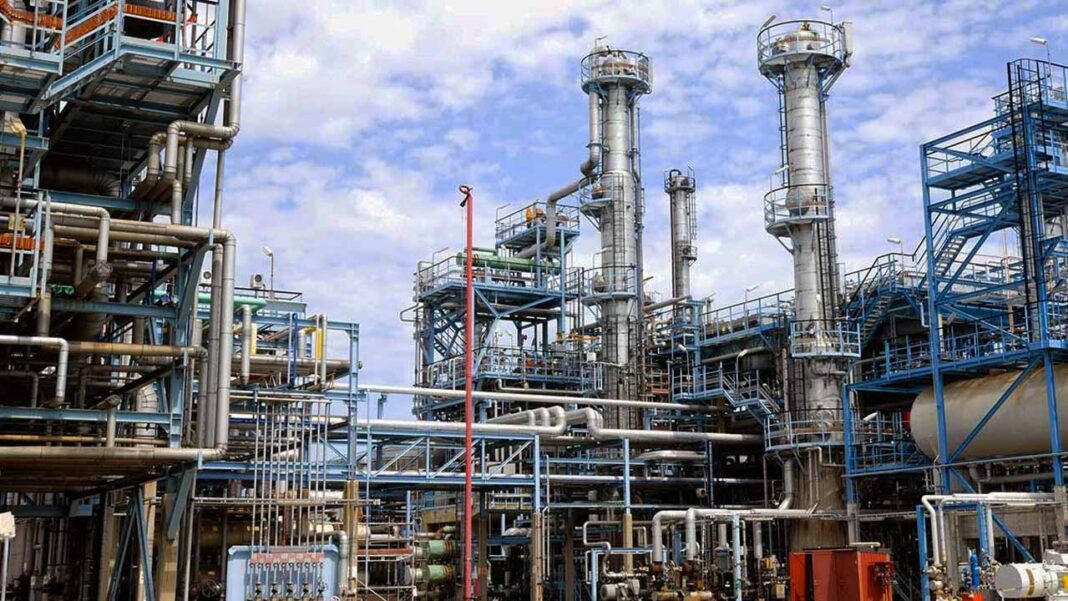Dangote Refinery expects its first crude batch in June 2023. According to a report released on May 16 by S&P Global Commodity Insights, the Dangote refinery is anticipating the arrival of its first crude batch in June 2023.
A representative from the refinery revealed that they expect to commence processing this initial batch, consisting of 500,000 barrels per day (b/d), before gradually increasing production to 650,000 b/d by mid-2024. The official commissioning of the Dangote refinery by President Buhari is scheduled for May 22.
The report also highlights that a significant portion of the crude oil for the refinery will be sourced from Nigeria, a country with a production capacity of 2.5 million b/d. However, Nigeria has faced challenges in surpassing a daily output of 1.2 million b/d due to issues such as insecurity, theft, strikes, and operational problems related to aging wells.
Based on information from S&P Global Commodity Insights, the Dangote refinery is set to manufacture Euro 5 compliant gasoline, diesel, and polypropylene. The company’s data indicates that motor gasoline (petrol) production is projected to rise from nearly zero currently to 249,000 barrels per day (b/d) in 2026 and exceed 300,000 b/d by 2033. Additionally, the report states that petrol imports will decrease by over half to 154,000 b/d by 2026.
Furthermore, with Nigeria’s expected rapid population growth in the coming decades, the data suggests that imports will once again surpass domestic production by 2042. Notably, starting from the following year, Nigeria will begin exporting gasoil for the first time, with production anticipated to increase from 3,500 b/d in 2023 to 211,000 b/d in 2027.
According to S&P analysts, Nigeria’s crude production is expected to maintain stability at approximately 1.3 million b/d over the next ten years. However, the start-up of the Dangote refinery is anticipated to have a significant impact on oil exports. The forecast indicates that in 2023, Nigeria is projected to produce 1.46 million b/d and export 1.45 million b/d. However, by 2027, despite a slight decline in production to 1.30 million b/d, oil exports are forecasted to drop to 656,000 b/d. This decline in exports can be attributed to the operational influence of the Dangote refinery.
In a recent interview with the Economist, Aliko Dangote emphasized the refinery’s contribution to stimulating the development of additional industries. Dangote highlighted that the production of crucial products such as naphtha and polypropylene by the refinery would serve as a catalyst for the growth of industries such as cosmetics, plastics, and textiles.
This suggests that the refinery’s operations would have a positive ripple effect on the Nigerian economy, fostering the expansion of diverse sectors.




